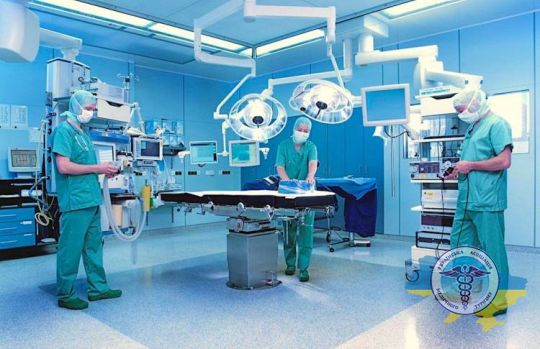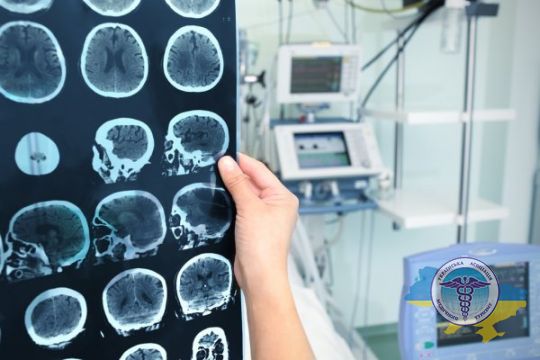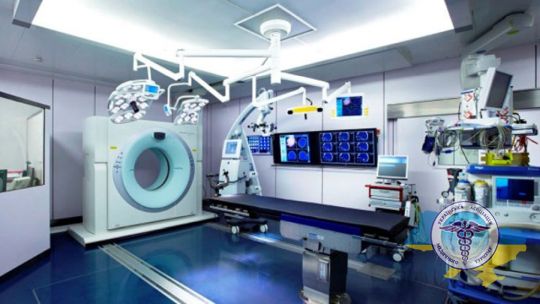Neurosurgery in Israel

Neurosurgery is one of the most progressively developing areas of modern medical science. This is especially evident in recent decades, when a real breakthrough in the treatment of the brain and spinal cord was made thanks to the latest minimally invasive treatment methods with minimal intervention in the body.
One of the recognized leaders in world medicine is Israel, where practically all the advanced developments of medical science are applied. Modern neurosurgery in Israel successfully uses innovative techniques, including awake craniotomy - craniotomy performed in conditions when the patient is fully conscious. This unique ability allows the surgeon to control the patient's basic functions (motor, speech, etc.).
Important! Medicine in the country is at the highest level. The specialists receive deep professional education and work on the latest equipment. Most of them combine medical practice with scientific and research activities, thanks to which their achievements are known throughout the world.
The overwhelming majority of procedures are performed using minimally invasive techniques, including transnasal introduction of high-precision microsurgical instruments. The high efficiency of curing cancer tumors is due to the method of stereotaxic radiosurgery, as a result of which a focused flux of radio waves eliminates the cause of the disease without affecting healthy tissues.

Want to know how much the treatment costs?
Answer a few questions and get preliminary information about the cost of diagnosis and treatment!
What diseases does neurosurgery treat?
For many years, the country's medical institutions have consistently maintained a high percentage of successful recovery in patients with various lesions of the components of the nervous system.
The area of responsibility of specialists in the field of neurosurgery includes various areas:
- Pathology of the spinal column, including protrusion of the elements of the intervertebral disc. Israel and the European Union states such diseases are referred to the management of neurosurgeons, in contrast to the post-Soviet countries, where spine problems are dealt with by orthopedic surgeons;
- TBI and other lesions of the nervous system resulting from various injuries;
- Diseases of the nervous system caused or accompanied by benign tumors or cancer cells. In the country since the 80s. of the last century successfully develop neuro-oncology - a field of specialization in the diagnosis and treatment of cancer. The coordinator of the work of the team of specialists who are involved in the removal of neoplasms is a neuro-oncologist;
- Vascular pathologies arising in the structures of the nervous system, including stroke, malformation, aneurysm, problems of vascular development, etc.;
- Hereditary diseases. These include abnormalities in the formation of the cranium, disturbances in the functioning of the spinal canal, damage to the cerebellum, etc.;
- Damage to the nervous system, which includes Parkinson's disease, epileptic seizures, as well as tremors and other functional diseases;
- Pain syndromes caused by a disorder of the nervous system;
- Mental problems caused by damage to the structures of the nervous system.
Benefits of neurosurgery in Israel
- Immediate implementation of proven latest advances, including equipment, techniques and drugs. Innovative developments are applied 4-6 years earlier than in other developed countries;
- Modern neuronavigation equipment. The most complex procedures require unique equipment. The latest technology allows for interventions without disrupting important functions of the brain;
- Low-traumatic operations. During the implementation of the procedures, specialized optical devices are used, designed to carry out the most complex manipulations through microscopic punctures with a diameter of less than 1 cm, which significantly reduces the risk of side effects and at the same time contributes to the rapid recovery of health after surgery;
- High level of qualifications. The state allocates up to 60% of its social budget for training personnel, including specialists whose work involves the use of sophisticated equipment;
- Security. In Israel, the highest rate of positive results of therapy is consistently maintained. This is also explained by the use of specialized computer monitoring, in which special devices adjust the location of surgical instruments, thereby increasing the accuracy of the doctor's movements;
- Affordable cost. The Doctors' Association conducted marketing research comparing prices for similar services in Israel, Germany and other developed countries of the European Union. In terms of the cost of treatment and hospital stay, Israel's indicator is on average 35% lower than in the EU countries.
How is the diagnosis carried out before neurosurgical operations?

Before making the main diagnosis, specialists conduct a comprehensive examination, paying attention to any deviation from the normal condition. If necessary, the patient is referred for additional counseling to narrow specialists (vascular surgeons, ophthalmologists, etc.).
To make a diagnosis, various instrumental and laboratory methods are used, the main ones of which are:
- Cerebral angiography. Examination of cerebral vessels using X-ray equipment;
- Lumbar puncture. Determination of indicators of intracranial pressure, differentiation of the diagnosis, administration of a contrast agent;
- Echoencephalography. Ultrasound examination aimed at diagnosing hemorrhages and other unstable situations;
- CT. Layer-by-layer scanning to detect tumors, ischemic stroke and other severe pathologies, the consequences of traumatic brain injury;
- Electroencephalography. Examination of the activity of the brain substance;
- X-ray with the use of contrast agents. Identification of violations in the state of blood vessels;
- MRI. Detection of neoplasms, even of a small size. Diagnostics of epilepsy, cerebrovascular and demyelinating diseases, etc.;
- Radionuclide tomographic method (positron emission study). Hardware examination performed when a tumor, epilepsy, as well as stroke and other diseases are detected;
- Doppler ultrasound scanning. Diagnostics of the condition of the carotid arteries using ultrasound waves;
- X-ray contrast study (or myelography). It is used to diagnose a hernia of the spinal canal, as well as tumors.
In addition to the listed methods, highly specific techniques (genetics, biochemistry, bacteriology, virology, etc.) are widely used, prescribed to patients individually in accordance with each clinical case on the basis of laboratory tests.
Methods of treatment in clinics of neurosurgery in Israel
When prescribing a course, progressive minimally invasive procedures are mainly used. Such gentle methods allow people to more easily endure even the most difficult operations with a short rehabilitation period.
Innovations are used during manipulations on the brain and spine, allowing timely detection of the presence of various lesions.
Brain surgery
Medical science currently has several main directions.
Endoscopic neurosurgery
The procedure is assigned to people who have been diagnosed with neoplasms of the pituitary gland and adjacent areas. A small-diameter incision is made in the upper area of the sinuses, and a special endoscopic instrument is inserted into it in the form of a flexible tube equipped with a microscopic video camera and multifunctional attachments.
Healthy tissues are removed with maximum delicacy, and the problem focus is excised with a laser or other electrode. The risk of complications is excluded, and the recovery period does not exceed two days.
Craniotomy
With this intervention, access to the brain is carried out after partial removal of the skull bone, then the tumor and other formations are removed from the tissue and blood vessels.
In Israel, a new method of craniotomy was invented, which is successfully used in practice and is called awake craniotomy. During the use of this innovative method, the patient is given local anesthesia, he is fully conscious, can answer questions, distinguish color and make simple movements. All this allows the doctor to control the basic functions of the body during the intervention and most carefully to excise problem areas. All actions of the surgeon are specified and controlled by a high-tech intraoperative microscope and other equipment.
Robot-assisted surgery
Carrying out procedures with the participation of the Da Vinci robot, which has several mechanical limbs equipped with multifunctional interchangeable attachments, as well as a control unit and video surveillance cameras, which allows you to carry out the whole range of gentle manipulations on any part of the brain.
In this case, the entire operating field is displayed on a monitor, the control panel of which has a 10-fold magnification. The operating specialist moves the joysticks along the surface of the control panel, and the robot reproduces all its movements with maximum accuracy.
Working with an assistant robot is carried out in the treatment of a wide range of diseases: removal of a tumor, aneurysm, normalization of intracranial pressure, etc.
Cyber Knife
The stereotactic radiosurgical method is used in cases where removal of neoplasms is impossible with traditional access options, or if the focus is located near a vital anatomical site.
The sessions are conducted using the Cyber Knife device. The technique is based on the effect of a focused radiation flux aimed specifically at the problem area.
Absolute manipulation accuracy is achieved using the navigation system. The device carries out control scanning of the tumor, according to which a 3D model is created. The exposure of the beam is directed only to the malignant cells without causing harm to the surrounding areas.
Functional neurosurgery
Surgical procedures performed in cases where conservative treatment of skeletal muscle rigidity, epilepsy and pain is not effective enough. The method is based on the so-called "isolation" of the problem area, carried out as a result of dissection of the pathways inside the medulla.
The doctor identifies the most active area using special neuronavigation systems. Then the pathways are interrupted by a laser or a directed electrical pulse at high frequencies.
Stabilization of the patient's condition occurs almost immediately, within 24 hours after the intervention, positive results come, seizures and pain disappear.
Deep neurostimulation
An up-to-date method of treating Parkinson's disease without prescribing medication. The use of this technology involves the stimulation of certain areas of the brain with precise dosing of electrical discharges. As a result of the application of the technique, the functioning of the musculoskeletal system in a person is normalized, at the same time, tremor is eliminated, and impaired coordination of movements is eliminated.
With continuous neuromonitoring, microelectrodes are inserted into the problem area and a weakened current discharge is applied, which "reboots" the neurons and restores normal patency, significantly improving health.
Spine surgery
Clinical centers conduct:
Minimally invasive surgery
Successful removal of herniated discs with maximum recovery of the body is carried out on the basis of minimally invasive techniques. The doctor performs the "evaporation" of the hernial protrusion with a laser, using endoscopic equipment and a robot assistant.
At the same time, the walls are strengthened by applying biogel, and the vertebral bodies are reconstructed using specialized surgical cement.
Cryodestruction
Clinics of neurosurgery in Israel in cases of detection of primary lesions (tumor, metastases) of vertebral bodies or intervertebral hernias of a small scale, produce the destruction of foci of the disease using ultra-low temperatures.
The doctor carries out constant monitoring using computed tomography, makes a small-diameter incision on the skin and inserts an electrode into the affected area, through which liquid nitrogen or argon is supplied, which, in turn, causes an instantaneous decrease in temperature in the tissues, reaching from -50 to -1200 degrees.
As a result, the problem focus is crystallized, and it is easily removed with an aspirator.
Spinal fusion
The procedure is designed to normalize the axis of the main part of the skeleton in diseases such as curvature of the spine, congenital deformities, injuries and other cases.
The technique is based on the normalization of the correct position of the vertebrae using a solid metal rod, bone implant and an intermediate fixator.
The doctor normalizes the position of the vertebrae with their further fixation using a rod. Further, a fixator and elements of bone grafting are applied between the vertebrae. As a result, the bone grows through the cells of the fixator, and the correct position of the vertebrae is fixed.
Intervertebral disc replacement
In cases of critical damage to the disc body, for example, with the development of a hernia or other process, the option with prosthetics is used.
Doctors use modern implants made of plastic hypoallergenic material in exact accordance with the anatomical shape.
The procedure is performed in conjunction with an assistant robot or endoscopic equipment. The doctor performs continuous intraoperative CT control and makes a small incision over the prosthetic site.
Using an electrocoagulator, the surgeon excises the damaged disc and smoothes the surface of the vertebrae. Then the implant is inserted and fixed in the anatomical bed. Already 2 days after the procedure, a person can return to their usual rhythm of life.
How to choose the best neurosurgical clinic in Israel?

First, you should familiarize yourself with the list of services and technologies used in the hospital. The newest navigation systems, actively used in neurosurgical clinics in Israel, most accurately carry out the widest range of procedures.
Innovative treatment methods allow tracking the position and movement of instruments during manipulations, thereby eliminating the risk of causing damage to healthy tissues.
You should also take into account the qualifications and practical experience of doctors. Leading specialists undergo training at the central medical centers of the United States and the European Union. Most of them are active members of scientific international organizations. The specialists have many years of experience in medical practice and perform thousands of surgical interventions, regardless of the complexity of the diagnosis.
Advice! In public and private clinics, the cost of providing services may differ. To get exact prices, leave a request on our website - a medical consultant will contact you, make inquiries to the relevant organizations and provide an individual wellness program with prices.
The cost of neurosurgery in Israel
The prices for services are an important factor influencing the choice of the country and the direct organization among health care institutions.
Important! In this regard, Israel compares favorably with the stable loyalty of pricing from the United States and the European Union, the cost of services in which is much higher, especially for foreign citizens who do not have a local health insurance policy.
Favorable prices for neurosurgery in Israel are provided by increased funding for health care from the state. Private clinics are on an equal footing with state ones, both in terms of technical equipment and the level of qualifications of specialists.
The total cost of services depends on the diagnosis, the presence of complications, the duration of the course and other factors. As an example, here are the prices for popular procedures:
- brain tumor therapy at a basic level - from $ 12,000;
- basic therapy for pituitary adenoma - from $ 28,000;
- interventions for aneurysm - from $ 27,500;
- surgical intervention for hydrocephalus - from $ 23,300;
- removal of intervertebral hernia - from $ 11,500;
- brain tumor surgery - from $ 17,000;
- a treatment course for a pituitary cyst - from $ 27,600.



